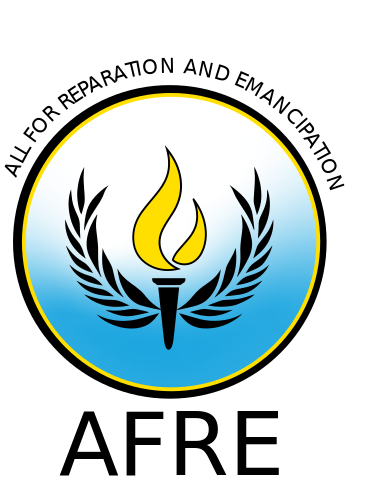Afrodescendant -- a working definition
How the Definition was Created
The UN organized a forum for leaders of descendants of enslaved Africans at their request. The forum took place in 2002, in LaCeiba, Honduras. A number of leaders from South and Central America were in attendance. AFRE representatives in attendance from the US were Mr. Silis Muhammad, Harriett AbuBakr, Esq. and Ida Hakim.
In the first few meetings the conversation on identity took place. Mr. Muhammad proposed “Lost-Found Peoples.” The leaders were already self-identified as Afrodescendants, using the terms Afro-Cuban, Afro-Peruvian, Afro-Colombian and so forth, and Afrodescendants collectively. They expressed the desire to continue using the term Afrodescendant.
Mr. Muhammad didn’t immediately agree to their request, as his desire was to bring forward the work of the Messenger in establishing the Lost-Found Nation of Islam. Discussions between the leaders continued. On the last day of the forum, prior to the final meeting, UN Sub-Commissioner Professor Jose Bengoa asked Mr. Muhammad and Atty. AbuBakr to attend a dinner that had been arranged for all of the leaders.
That afternoon Mr. Muhammad and Atty. AbuBakr brought a hand-written definition of Afrodescendants to Ida Hakim. Ida copied the definition on a clean paper for presentation at the dinner meeting. At the dinner, Mr. Muhammad and Atty. AbuBakr were seated with Gisele Arandia, leader from Cuba who was also President of the Afrodescendant group. Mr. Muhammad asked the UN interpreter to read the document to Gisele. He did so, and line after line Gisele smiled, as the definition indicated Mr. Muhammad’s agreement to accept the term Afrodescendants.
The definition was circulated and discussed by the group. It was agreed to put language in the definition having to do with “partially lost ties” as the Garifuna people of Honduras had not fully lost their ties to Africa, and they retained some of the culture. It was agreed to further discuss the definition at the next forum. Immediately before the final meeting in Honduras, UN Sub-Commissioner Bengoa distributed to all of the leaders UN badges with their name and the term Afrodescendant.
Discussion began again in a 2005 forum in Chincha, Peru. Many of the leaders from the previous forum were in attendance. Afrodescendant UN representative, Gay McDougal, suggested that language be placed in the definition to include people of African descent (African immigrants) who suffered racism. The leaders did not accept her changes and kept the definition focused on the descendants of enslaved Africans who had suffered loss of identity.
Afrodescendant leaders Edna Marie Santos Roland of Brazil, and Romero Rodriguez of Uruguay, suggested that language be put in the definition to recognize that Afrodescendants from Brazil had not experienced complete destruction of their religion, Candomblé, as they had hidden it within the Roman Catholic practices.
The next morning was the very last meeting. Several Afrodescendant leaders spoke and stated their desire to meet again and continue discussions and development of the definition. Mr. Muhammad spoke his support of continued forums. There was a great deal of gratitude expressed for Professor Bengoa, as the driving force behind the forums. The group was very much looking forward to future forums and further discussions.
The next forum has not yet taken place as the UN reorganized in 2006 and closed all three groups that were helping Afrodescendants come together.

